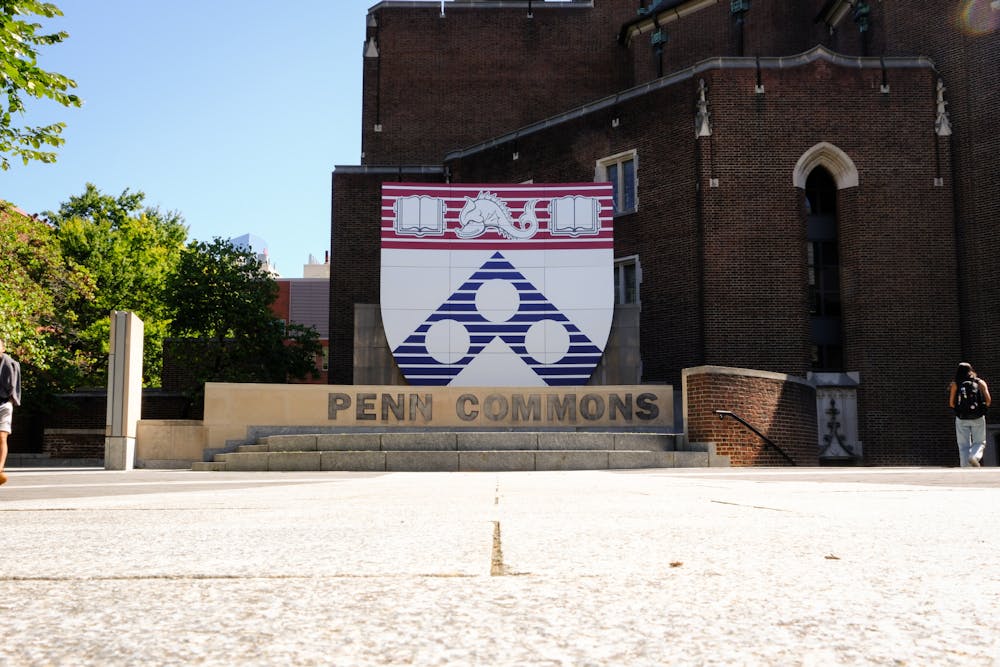
Penn struck out multiple provisions against discrimination and harassment during negotiations with graduate student union representatives, which one organizer called an “attack on DEI.”
After voting to unionize by an overwhelming majority in May 2024, Graduate Employees Together — University of Pennsylvania, which represents 3,700 student workers, began negotiations with Penn administration. The bargaining committee first signed its “Prohibition Against Discrimination, Unlawful Harassment, and Abusive Conduct” proposal, including demands against harassment and discrimination, in October 2024.
In an interview with The Daily Pennsylvanian, Lauren Perry, a fourth-year JD/Ph.D. student and a member of GET-UP’s bargaining committee, described the group’s initial bargaining demands on behalf of the committee.
“Over 2,300 graduate workers ratified those demands, and it was a huge show of support for what we’re fighting for and what we hope to win through this process,” Perry said. “Since October, we have been meeting about every week — three out of four weeks — with the administration in bargaining sessions that last about six hours.”
Religious Studies Ph.D. candidate Sam Herrmann, who also spoke on behalf of the bargaining committee, noted the group’s preparation before its first bargaining session.
“From those initial bargaining demands, we crafted a series of articles that we’ve been passing to Penn’s management team,” Herrmann said.
Each of the proposals, which are available on GET-UP’s bargaining portal, was deemed “high priority” by the committee, Herrmann said. The group has put forward 27 articles, including proposals on severability, health and safety, and employment records. At the time of publication, GET-UP and the University have reached a tentative agreement on just five articles.
“Penn is dedicated to providing a working environment of respect, dignity, equity, inclusion, trust, and support that protects civil and professional discourse and is free from discrimination, mistreatment, abuse, or coercion, and without fear of retaliation,” the bargaining committee wrote in the initial proposal.
Among the 13 provisions, the committee stipulated that accommodations must be available for graduate student workers dealing with pregnancy-related conditions, facing harassment by Penn Police, and needing religious accommodations.
The proposal also required “convenient access to gender-neutral bathrooms,” and for graduate student workers to be granted the liberty to use the “restroom that they are comfortable using.” The committee similarly demanded that graduate students workers be “referred to by the names and pronouns with which they identify, both in communications to and about them.”
GET-UP’s demands also included sexual harassment training and increased privacy of personal information.
Herrmann described the protection against discrimination as “the foundation” of the group’s proposal, adding that “the intention of the article is to protect graduate workers from harassment, bullying, abuse, or discrimination on a broad series of issues, including race, sexual identity, HIV status, [and] religion.”
Penn countered the initial proposal on Dec. 9, 2024, striking the entirety of GET-UP’s provisions, including the title. Administrators replaced the original title with the term “non-discrimination.”
“The University of Pennsylvania is committed to fostering a diverse and inclusive environment,” the administrators wrote in place of GET-UP’s provisions. “The University’s Policy on Equal Opportunity and Affirmative Action is incorporated by reference into this Agreement. That policy can be found on the University’s Office of Affirmative Action and Equal Opportunity Programs website.”
“Rather than go point by point in the article and engage with us in terms of the article we presented, they just struck it out,” Herrmann said.
In a written statement to the DP, History and Sociology of Science Ph.D. candidate and GET-UP organizer Sam Schirvar noted that the University’s “counterproposal struck not only the anti-discrimination provisions we are proposing but also any reference to harassment and abusive conduct.”
“Their counterproposal seeks to retain their prerogative to alter all discrimination policies at will without negotiations,” they added.
In response to Penn’s counterproposal, GET-UP put forward a six-page secondary antidiscrimination proposal on Jan. 14. Herrmann described the bargaining committee’s approach to its second proposal as an effort to “reiterate and enshrine into our contract” principles of antidiscrimination.
The article reinstated a majority of the original provisions and included additional demands regarding pregnancy-related accommodations.
“We added back in certain things, especially in terms of protected classes that were important to us and to our grad workers,” Herrmann said.
On Feb. 17, Penn struck the entirety of GET-UP’s proposal again. The counter retained the proposal’s title but replaced the preamble and provisions with a statement that simply addressed Penn’s dedication “to fostering a diverse and inclusive environment, characterized by a commitment to equal employment opportunity for all individuals.” This time, however, the University included the phrase “to the extent permitted by law.”
According to Herrmann, the counter’s focus on the legal limits of diversity and inclusion “is just a show.”
Describing the original proposal as “an article that we presented before Trump was even elected,” Herrmann said that “the University at large is conceding quite a lot of ground in relationship to DEI in advance of really any requirement to do so by the federal government.”
Herrmann recalled pressing administrators on the specific executive orders that “impinged on their ability as a private institution to make certain policies in regard to nondiscrimination, harassment and abuse.” In response, the University “backed off … and didn’t ever provide a particular executive order.”
Despite “fram[ing] its argument around restrictions from the federal government,” the University has not “given any substantive reason why now,” Herrmann added.
Herrmann believes that the linking to the University’s website “gives them the ability to change whatever that policy is or wherever that link takes you.”
In February, Penn’s “Equal Opportunity and Affirmative Action Policy” was renamed to the “Policy on Equal Opportunity.”
“The new policy and statement, which appear below, reflect Penn’s long-standing commitment to values of excellence, freedom of inquiry and expression, and respect,” senior University administrators wrote in a note prefacing the policy change. “We understand that the revisions to federal laws and regulations can be troubling when they change rapidly.”
Perry called the “preemptive” changes “really disappointing” because of their repercussions on Penn’s “core research and teaching mission, which is what we as graduate student workers came here to do.”
Despite the “broader attacks on DEI,” Perry said that graduate student workers are motivated and ready to fight for their rights.
“We’re hopeful that this kind of negotiation process gives us power in the midst of a time where I think people might say they don’t have as much power.”
GET-UP first announced its campaign to unionize in an online statement in March 2017. In May 2024, a GET-UP vote to unionize passed by a 1,807-97 margin. Over 2,300 eligible workers, all of whom are members of GET-UP, cast ballots in the election.
The Daily Pennsylvanian is an independent, student-run newspaper. Please consider making a donation to support the coverage that shapes the University. Your generosity ensures a future of strong journalism at Penn.
Donate









